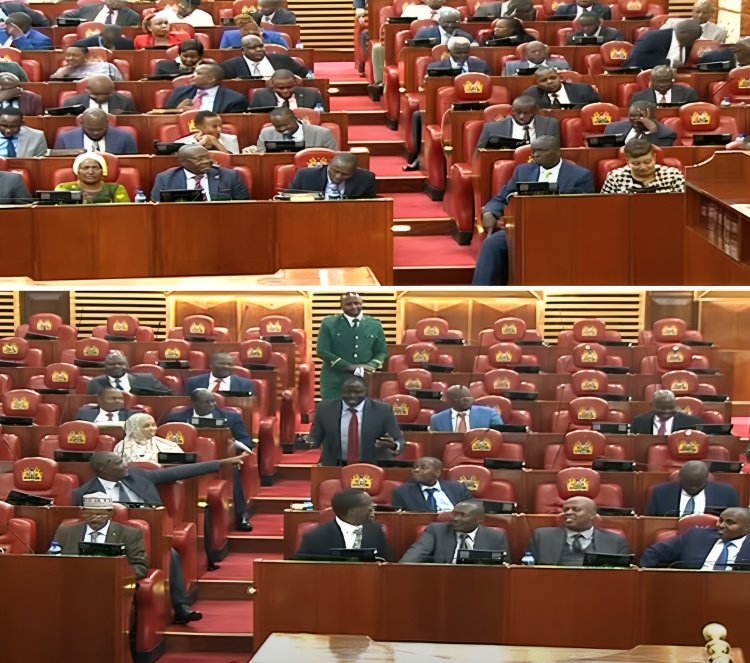In a pivotal turn of events, the Housing Levy Bill spearheaded by President William Ruto has reached a critical milestone with the resounding approval of the Kenya Kwanza senators. The legislative push saw 27 senators throwing their weight behind the initiative, marking a significant triumph for Ruto’s pet project. However, the journey to this momentous decision was not without its share of controversies and obstacles.
Senators pass Housing Levy Bill
The Affordable Housing Bill, which aims to address Kenya’s housing crisis by providing accessible housing solutions, faced staunch opposition from various quarters. Notably, 10 senators aligned with the Azimio coalition opposed the bill, reflecting the polarized landscape of Kenyan politics. Additionally, a further 10 senators were notably absent during the crucial vote, raising questions about their stance on the matter.
The passage of the bill in the Senate follows an earlier endorsement from Members of Parliament aligned with President Ruto’s political faction in the National Assembly. Despite dissenting voices and legal challenges, the momentum behind the Affordable Housing project remained steadfast.
Critics of the bill, including segments of the public and the Azimio coalition, raised concerns about its provisions and implications. Some even resorted to legal avenues, leading to a temporary suspension of the project on constitutional grounds. However, Ruto remained undeterred, vehemently opposing the court’s intervention and reaffirming his commitment to advancing development initiatives in the country.
The voting session on Tuesday witnessed a decisive outcome, with the Kenya Kwanza senators defeating proposed amendments from their Azimio counterparts. Deputy Speaker Kathuri Murungi announced the results, confirming 27 affirmative votes in favour of the bill, while 10 senators dissented. Notably, 10 other senators were conspicuously absent during the proceedings, adding intrigue to the political dynamics surrounding the Affordable Housing project.
As the Affordable Housing Bill clears another hurdle in its legislative journey, it underscores the enduring political divide and the complexities of governance in Kenya. With the support of the Senate secured, President Ruto’s vision for accessible housing takes a significant stride forward, promising transformative changes for the nation’s citizens.














